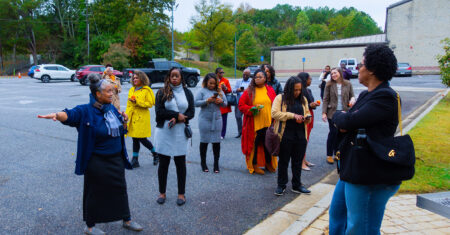Reverend Dr. Benjamin F. Chavis Jr.
In her autobiography, my long-term personal friend, civil rights leader, and scholar Angela Davis wrote that “Jails and prisons are designed to break human beings, to convert the population into specimens in a zoo – obedient to our keepers, but dangerous to each other.”
That “zoo” is the United States. Despite being the wealthiest and most developed nation in the world, America cages more people than any other country. In fact, nearly two million people are currently behind bars and another almost 4 million on parole or probation.
Over the last few decades, reforms at both the state and federal level have chipped away at these injustices. Sentencing guidelines have been updated, drug laws reformed, and there has been a renewed focus on rehabilitation programs. Yet the fact remains: the justice system is fundamentally broken and was never designed to provide second chances.
The result is a system defined by racial inequity. Black and Latino people, for example, make up roughly 30% of the total U.S. population yet account for 56% of the country’s inmates. And when comparing incarceration rates to the country’s white population, the numbers are even starker. Black men are incarcerated at nearly seven times the rate of their white counterparts and Latino men at nearly three times the rate of white males.
And those disparities persist well beyond prison walls. While probation and parole in theory provide pathways back to work, school, and the community – in practice they function as a trap. It is an ouroboros where people are sent right back to prison for missing an appointment with a parole officer, failing to maintain a steady job, or just staying out past curfew.
As Michael Rubin, the CEO of Fanatics and one of the founders of the Reform Alliance, told the Philadelphia Citizen: “I think it’s conservative to say there are a million people caught up in the revolving door parole and probation system. They’re in for a minimal amount of drugs and can’t get out. They miss an appointment or make an illegal u-turn, and back they go. Jail should be for murderers and rapists. Why are we putting someone who smoked weed behind bars?”
Few cases illustrate this systemic abuse better than that of Meek Mill, the Philadelphia hip hop artist and criminal justice reform advocate who was repeatedly incarcerated over technical probation violations like failed drug tests, popping a wheelie on a motorcycle, and unapproved travel. His ordeal highlights the absurdity of a system that punishes mistakes with prison cells and makes freedom contingent on perfection.
Meek – who joined Rubin and Jay-Z in the founding of the Reform Alliance wrote in a 2018 essay for the New York Times, “The system causes a vicious cycle, feeding upon itself – sons and daughters grow up with their parents in and out of prison, and then become far more likely to become tied up in the arrest-jail-probation cycle. This is bad for families and our society as a whole.”
The rapper was one of the lucky few. Pennsylvania’s Superior Court overturned his 2008 conviction, and the charges were formally dropped later that year. And his work with Rubin and the Reform Alliance has helped catalyze a broader reform movement and has been pivotal in securing a number of prison and parole reform victories – from Pennsylvania’s 2023 probation reform law to Virgina passing a similar piece of legislation this April.
These successes show what is possible when advocacy, business leadership, and public policy align. But still, the system remains far from fixed.
On a federal level, parole was abolished in 1987 and there is bipartisan support to reverse the move with the First Step Act Earned Time Credits serving a model. At the same time, access to parole varies wildly state-by-state, with some being nearly nonexistent or riddled with opaque, politicized processes.
If rehabilitation truly is the goal of the justice system, then parole must become a true off-ramp for individuals – not a revolving door. This means ending punitive technical violations, building transparent and proportional systems, and recognizing that instability isn’t criminal.
Progress is possible, but fragile. Until we replace the zoo Angela Davis described with a system rooted in dignity and second chances, the cycle will grind on – costing families, propping up systemic problems and racial inequities, and destroying futures for individuals and communities.
Reverend Dr. Benjamin F. Chavis, Jr is President and CEO of the National Newspaper Publishers Association (NNPA), and Executive Producer/Host of The Chavis Chronicles on PBS TV Network nationwide, and can be reached at dr.bchavis@NNPA.org.







